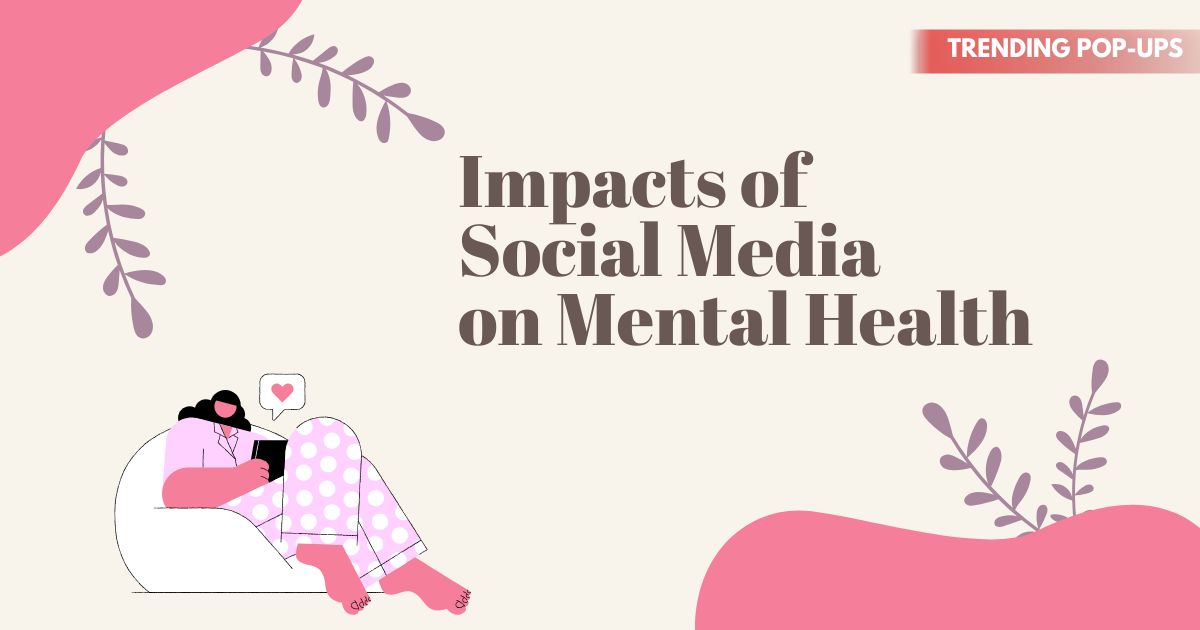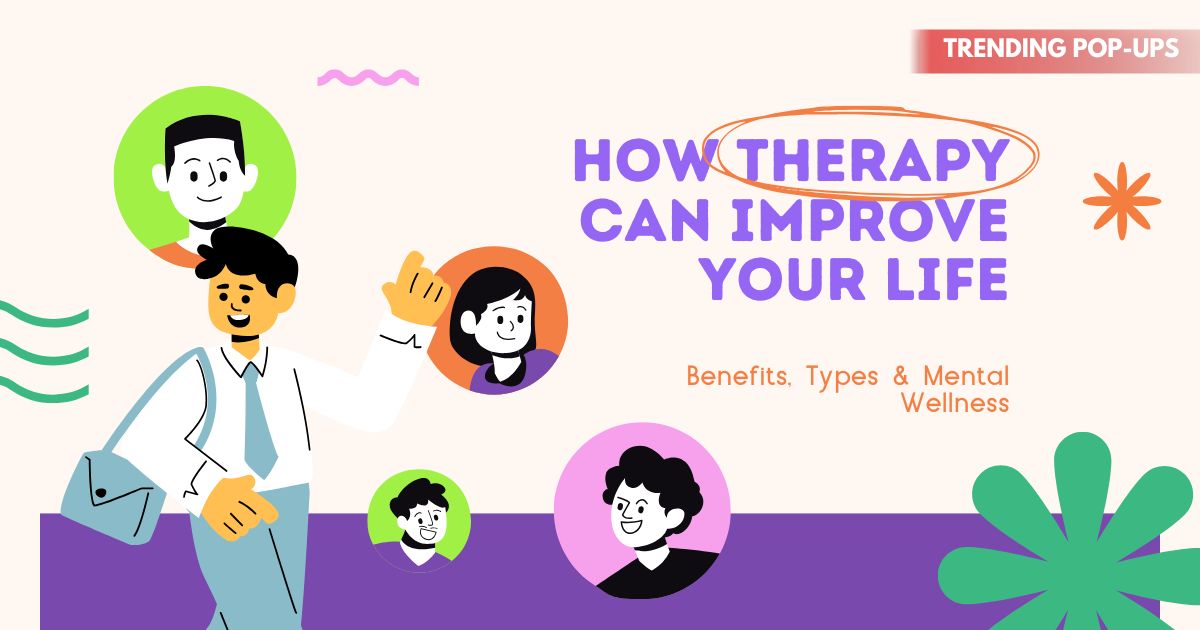Social media has become an integral part of modern life, connecting people across the globe. Platforms like Facebook, Instagram, Twitter, TikTok, and LinkedIn offer opportunities for communication, entertainment, and information sharing. However, while social media has benefits, it also significantly impacts mental health, both positively and negatively.
Understanding how social media affects your mental well-being is crucial to maintaining a healthy balance between online engagement and real-life life satisfaction.
The Positive Impacts of Social Media
While much of the discussion around social media focuses on its negative effects, it does have benefits for mental health when used mindfully.
1. Social Connection
Social media helps people stay in touch with family and friends, especially those who live far away. Regular connection can reduce feelings of loneliness and increase emotional support.
2. Access to Information and Support
Many people use social media to access mental health resources, join support groups, or find communities of like-minded individuals. This can promote awareness, education, and emotional well-being.
3. Self-Expression and Creativity
Platforms allow individuals to share their thoughts, talents, and experiences. Expressing yourself creatively can improve mood and provide a sense of accomplishment.
The Negative Effects of Social Media on Mental Health
Despite its advantages, excessive or unmindful social media use is linked to several mental health challenges.
1. Anxiety and Stress
Constant notifications, endless feeds, and pressure to respond quickly can cause mental overload. Comparing your life to others’ curated posts often leads to anxiety and stress.
2. Depression
Studies show that frequent social media use, particularly passive scrolling, can contribute to depressive symptoms. Seeing idealized portrayals of others’ lives may create feelings of inadequacy or low self-worth.
3. Sleep Disruption
Late-night scrolling or blue light exposure from screens can interfere with circadian rhythms, leading to poor sleep. Poor sleep quality directly affects mood and cognitive function.
4. Fear of Missing Out (FOMO)
Social media fosters a constant awareness of events, trends, and updates. FOMO can make individuals feel anxious, left out, or pressured to stay online constantly.
5. Cyberbullying and Online Harassment
Negative interactions online, including trolling, cyberbullying, and abusive comments, can severely impact mental health, causing stress, depression, or even trauma.
6. Reduced Attention Span
Constant exposure to quick, scrolling content may lead to difficulty focusing and reduced productivity, impacting overall cognitive well-being.
How Social Media Addiction Affects the Brain
Excessive social media use can trigger dopamine-driven reward pathways, similar to addictive behaviors. Each like, comment, or notification provides a small dopamine boost, encouraging repeated checking. Over time, this can create:
-
Dependence on social validation
-
Impulsive behaviors and compulsive checking
-
Reduced real-world social interactions
-
Heightened stress when disconnected
Signs Your Social Media Use May Be Affecting Your Mental Health
-
Feeling anxious or stressed when not checking social media
-
Spending hours scrolling without realizing
-
Comparing yourself constantly to others
-
Experiencing mood swings after using social media
-
Losing interest in offline activities you previously enjoyed
Recognizing these signs is the first step toward regaining control.
Healthy Social Media Habits to Protect Mental Health
1. Set Time Limits
Use apps or built-in smartphone features to monitor and limit social media usage. Consider setting specific “offline hours.”
2. Curate Your Feed
Unfollow or mute accounts that trigger negative emotions. Follow accounts that inspire, educate, or entertain positively.
3. Engage, Don’t Scroll Passively
Active engagement, such as commenting, posting meaningful content, or messaging friends, is healthier than mindless scrolling.
4. Take Regular Digital Breaks
Schedule “digital detox” periods to focus on real-life interactions and activities that enhance well-being.
5. Avoid Using Social Media Before Bed
Limit screen exposure at least an hour before sleep to improve sleep quality and reduce stress.
6. Practice Mindfulness
Be aware of your feelings while using social media. Pause and reflect if certain posts or interactions trigger negative emotions.
7. Seek Professional Help If Needed
If social media use is causing anxiety, depression, or sleep problems, consulting a mental health professional can help develop coping strategies.
The Role of Parents and Educators
For teenagers and young adults, guidance from parents and educators is essential.
-
Teach healthy digital habits and screen time management
-
Encourage open conversations about online experiences
-
Promote offline activities, hobbies, and face-to-face interactions
-
Educate about cyberbullying, privacy, and online safety
Finding a Healthy Balance
Social media isn’t inherently bad. It’s the amount and manner of use that determines its impact on mental health. By being mindful and intentional, you can reap the benefits of connection, creativity, and learning without falling into negative patterns.
Some tips for balance:
-
Prioritize face-to-face relationships
-
Focus on meaningful interactions rather than quantity
-
Limit notifications and remove unnecessary apps
-
Engage in offline hobbies to cultivate real-world satisfaction
Conclusion
Social media has transformed communication, learning, and entertainment, but it can also pose risks to mental health if overused or mismanaged. By recognizing its effects on anxiety, stress, sleep, and self-esteem, and by adopting healthy digital habits, individuals can protect their mental well-being while enjoying the positive aspects of online engagement. Mindful use, intentional breaks, and balanced offline life are key to maintaining mental health in the digital age.
Also Read : Daily Habits to Reduce Anxiety and Stress
FAQs
1. Can social media cause depression?
Excessive or passive social media use, especially comparing yourself to others, can contribute to depressive symptoms. Mindful use helps mitigate this risk.
2. How much social media use is healthy per day?
Experts suggest limiting recreational use to 1–2 hours per day, while prioritizing meaningful engagement over passive scrolling.
3. Can social media improve mental health?
Yes, when used intentionally, social media can provide social support, educational resources, and creative outlets that enhance well-being.
4. What are signs of social media addiction?
Compulsive checking, anxiety when offline, disrupted sleep, and neglect of real-life activities are common indicators.
5. How can I reduce stress from social media?
Set boundaries, curate your feed, practice mindfulness, take digital breaks, and engage in offline activities to restore balance.
6. Is it safe for teenagers to use social media?
With guidance, healthy boundaries, and education about online risks, teenagers can use social media safely.



